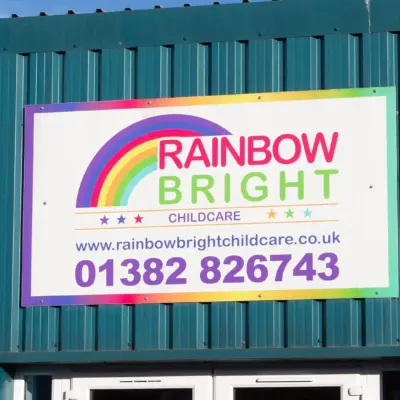
The early years of a child’s life are crucial for laying the foundation for future learning, communication, and emotional wellbeing. One of the most important aspects of early development is social interaction. Learning how to share, express feelings, cooperate with others, and manage conflict are all vital skills that begin to form before a child reaches the age of five.
For parents seeking quality childcare in Dundee, encouraging social skill development from home in tandem with early years settings like nurseries can offer children a well-rounded start. At Rainbow Bright Childcare, we understand the importance of social and emotional development and actively support it in our daily routines. Here are five key ways you can support your child’s social skills before they turn five.
Also Read- Building Strong Foundations: Why Early Education Matters at Rainbow Bright Childcare
1. Encourage Playdates and Peer Interaction
From an early age, children begin learning how to relate to others through play. Arranging regular playdates or attending toddler groups provides opportunities to practise sharing, taking turns, and resolving minor disagreements. Whether it’s playing with building blocks, taking part in a music group, or just having a run around at the local park, social play lays the foundation for key interpersonal skills.
You don’t need an elaborate plan—an hour of free play with a friend can teach more about empathy than any structured activity. If you’re already enrolled in or considering childcare in Dundee, ask if your chosen setting organises collaborative play activities or group-based learning tasks.
2. Model Positive Social Behaviour at Home
Children learn by watching the adults around them. If you greet others politely, use respectful language, and manage conflict calmly, your child is likely to mirror this behaviour. Be intentional about how you communicate in front of your child. Even simple actions, like saying “please” and “thank you,” making eye contact, and listening patiently, help set an example.
It also helps to narrate your social interactions. For instance, saying “I’m thanking the postman for delivering our parcel” gives your child context and reinforces the value of politeness and gratitude. Settings providing childcare in Dundee also use role-modelling extensively to encourage cooperative and friendly behaviour among peers.
3. Teach Emotional Literacy
Before children can navigate social situations effectively, they need to understand their own emotions. Helping your child name and identify their feelings is the first step. Use books, flashcards, facial expression games, and open conversations to help them differentiate between being sad, angry, frustrated, or excited.
For example, you could say: “I see you’re frowning and clenching your fists—are you feeling angry because you had to stop playing?” This not only validates their emotions but shows that it’s okay to express them in words.
Emotional literacy is also a central component of early years programmes at reputable childcare in Dundee providers like Rainbow Bright Childcare, where children are guided to express their feelings constructively and respond empathetically to others.
4. Emphasise Cooperative Over Competitive Play
While competition can be motivating for older children, for under-fives it often leads to frustration. Prioritise cooperative activities that foster team-building and joint problem-solving. These might include building a block tower together, creating a joint drawing, or taking part in a group treasure hunt.
Cooperative play helps children learn to listen to others’ ideas, share tasks, and celebrate collective achievements. It also encourages patience and flexibility—two qualities that are essential in social settings.
At Rainbow Bright Childcare, we encourage games that promote group cohesion and ensure that every child feels included and valued. This ethos is common across quality childcare in Dundee, and helps children develop strong interpersonal relationships from an early age.
5. Introduce Structured Early Learning Environments
While informal interactions at home and on playdates are important, attending a structured early learning setting such as a nursery or pre-school allows children to practise their social skills in a consistent, supervised environment.
Children in early years settings benefit from routines, guided group activities, and peer interactions that are crucial for social development. Being part of a group encourages independence, cooperation, responsibility, and respect for others’ space and belongings.
If you’re exploring options for childcare in Dundee, consider visiting Rainbow Bright Childcare. Our experienced staff support each child individually and as part of the group, encouraging inclusive play, gentle discipline, and confidence-building through age-appropriate challenges.
Also Read- Rainbow Bright Childcare Raises £129 for Cash for Kids!
Final Thoughts
Supporting your child’s social skills before the age of five doesn’t require complex strategies. Simple daily interactions, consistent modelling, and exposure to both family and peer social situations can have a profound impact. Combine this with enrolment in a nurturing and structured childcare environment, and your child will be well on their way to becoming a socially confident individual.
If you’re looking for professional, caring, and flexible childcare in Dundee that puts your child’s emotional and social development at the heart of its approach, Rainbow Bright Childcare is here to help. Contact us today to book a visit and see our warm, engaging environment in person.




















